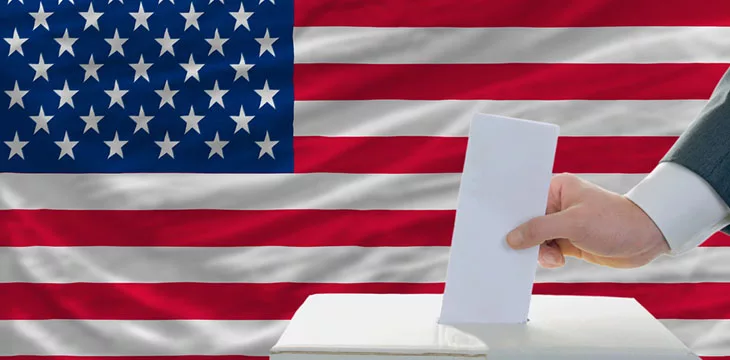|
Getting your Trinity Audio player ready...
|
The U.S. Federal Elections Commission (FEC) has publicly stated its intention to proceed with “full rulemaking” for the use of artificial intelligence (AI) in electoral campaigns ahead of the 2024 elections.
The FEC announced the launch of a public consultation to seek the opinion of citizens over its proposed rules on AI deepfakes in campaign advertisements. The efforts follow the submission of a petition from a non-profit organization Public Citizen to the FEC banning the use of deepfakes.
After examining the petition by the Office of the General Counsel, the FEC noted that it had met the requirements to proceed with the next stage in the rulemaking process. The petition urges the FEC to issue guardrails against deploying AI-generated deepfakes over fears that they may be used to mislead voters.
“The technology will almost certainly create the opportunity for political actors to deploy it to deceive voters, in ways that extend well beyond any First Amendment protections for political expression, opinion or satire,” the petition read.
Deepfakes rely on generative AI to make warp perceptions of reality using high levels of realism.
As the FEC proceeds with public consultations, there are fears that the proposed rules may adversely infringe on certain provisions for free speech, a sentiment shared by FEC Commissioner Allen Dickerson. To prevent muzzling free speech, Dickerson and the FEC are pushing for “precision of regulation” amid growing concerns over AI usage in the United States.
“Precision of regulation is a requirement in our work,” Dickerson said. “And if the commission has authority to act in this area, I hope that commentators will also demonstrate that it is possible to tailor a regulation to truly fraudulent activity without slowing protected expression.”
Already, deepfakes have made their debut in the buildup to the 2024 general elections after a GOP video surfaced on the internet illustrating the effects of a Donald Trump victory. Meanwhile, Ron DeSantis aggressively attacked Donald Trump using generated AI deepfakes.
In early July, deepfakes images of U.S. politicians Obama, Joe Biden, and Trump cheating on their spouses broke the internet, leading to louder calls for strict technology controls.
A global call to action
The United Nations (UN) lent its voice to the calls for stiff AI regulations, warning that the misuse of deepfakes could trigger violence in conflict-prone regions. The UN Security Council had previously tagged AI as posing the same risks as nuclear weapons if left unchecked.
In his sermon ahead of World Peace Day, Pope Francis warned that AI could adversely disrupt the balance of things after an AI-generated image of the Pope wearing a Balenciaga jacket went viral.
“The remarkable advances made in the field of artificial intelligence are having a rapidly increasing impact on human activity, personal and social life, politics and the economy,” Pope Francis said.
Critics argue that AI could negatively affect Web3, security, education, and health sectors if developers are left to innovate without necessary guardrails.
Watch: Understanding the dynamics of blockchain & AI

 08-08-2025
08-08-2025 





